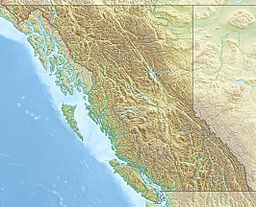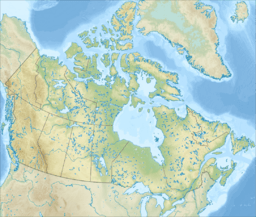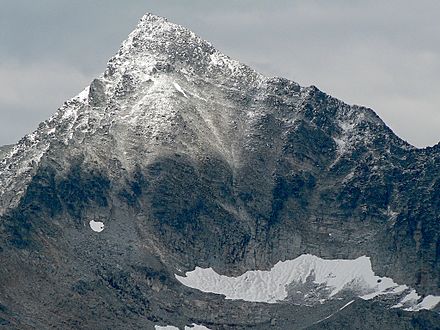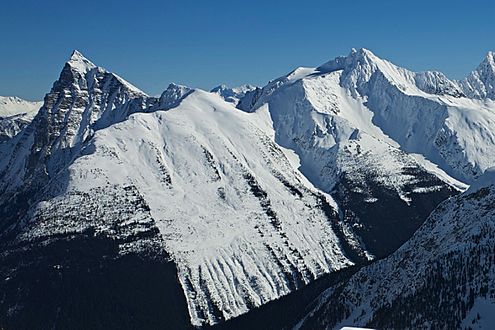Avalanche Mountain facts for kids
Quick facts for kids Avalanche Mountain |
|
|---|---|
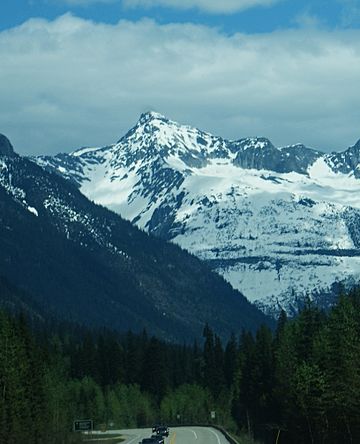
Avalanche Mountain (west face) seen from the Trans-Canada Highway
|
|
| Highest point | |
| Elevation | 2,861 m (9,386 ft) |
| Prominence | 280 m (920 ft) |
| Parent peak | Uto Peak (2927 m) |
| Listing | Mountains of British Columbia |
| Geography | |
| Location | British Columbia, Canada |
| Parent range | Sir Donald Range Selkirk Mountains |
| Topo map | NTS 82N06 |
| Climbing | |
| First ascent | 1885 John Macoun, James M. Macoun |
| Easiest route | Scrambling YDS 3 |
Avalanche Mountain is a tall mountain in Glacier National Park, British Columbia, Canada. It stands about 2,861-metre (9,386-foot) high in the Selkirk Mountains. You can see it from Highway 1 as you get close to Rogers Pass.
The mountain gets its name because its western side, called Avalanche Crest, often has avalanches. These avalanches can sometimes be a danger to the highway below, especially in winter and spring. A large glacier, the Avalanche Glacier, is located on the mountain's east side. Also, part of the Connaught Tunnel runs underneath Avalanche Mountain.
Contents
Mountain History
How Avalanche Mountain Got Its Name
The mountain was named by Major A.B. Rogers. He chose the name because of the many avalanches that fall from its western slopes onto Rogers Pass. The name was officially accepted in 1931 by the Geographical Names Board of Canada.
The 1910 Avalanche
A very important event in Canadian history happened here. In 1910, a huge avalanche from Avalanche Mountain caused the deaths of 62 Canadian Pacific Railway workers. This was the deadliest avalanche ever in Canada. Because of this terrible event, the railway decided to build the Connaught Tunnel. This tunnel helped trains avoid the dangerous avalanche paths.
First Climbers
The first people to climb Avalanche Mountain were John Macoun and James M. Macoun. They reached the top in 1885.
Mountain Weather
Climate Zone
Avalanche Mountain is in a subarctic climate zone. This means it has very cold, snowy winters. Summers are usually mild. Temperatures can drop to below −20 °C (that's −4 °F), and with the wind, it can feel even colder, below −30 °C (−22 °F).
Water Flow
Rain and melting snow from the mountain flow in two directions. Some water drains west into the Illecillewaet River. Other water flows east into the Beaver River.
Gallery
-
Mt. Macdonald (left) seen with Avalanche Mountain (right)
 | John T. Biggers |
 | Thomas Blackshear |
 | Mark Bradford |
 | Beverly Buchanan |


